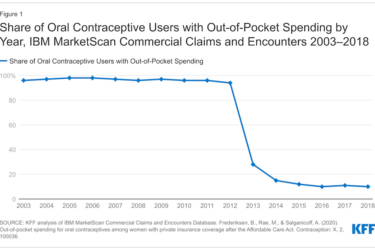
For the past several decades, HIV and AIDS have dominated discussions and reporting about LGBT health. While HIV/AIDS continues to be relevant to this population, thorough coverage of health for lesbian, gay, bisexual and transgender individuals must be much more comprehensive in examining other challenges they face.
Several takeaways from the Health Journalism 2016 session, “Beyond HIV/AIDS: Reporting on the LGBT Community,” can help reporters go beyond those issues to discover new stories and important trends. Two major themes emerged from the session that offer fertile ground for deeper reporting.
First, inequality in health insurance coverage is still a major problem for LGBT individuals, although four provisions in the Affordable Care Act aim to ameliorate that.
Second, as those with HIV are living longer, more of them are experiencing other age-related health conditions, and their needs are expanding well beyond HIV-related care. These two areas converge in the realm of social determinants, which play a role in the quantity and quality of health care that the LGBT populations do or don’t receive.
The panel was moderated by Andrew M. Seaman, a senior medical journalist with Reuters Health. The speakers were Kellan E. Baker, a senior fellow with the LGBT Research and Communications Project at the Center for American Progress; James Hekman, M.D., a clinical assistant professor at Case Western Reserve University’s Lerner College of Medicine; and Henry Ng, M.D., director of the MetroHealth System’s PRIDE Clinic and an assistant professor of medicine and pediatrics at Case Western Reserve University School of Medicine.
Here are some key points from the panelists that serve as jumping off places for local, national or trend stories:
- LGBT people are much more likely not to have health insurance, but those numbers are decreasing – currently as much as 25 percent – since passage of the Affordable Care Act.
- Since 2010, HIV/AIDS has accounted for less than half of the causes of death for people living with HIV. Other major causes of death include violence, substance abuse, non-AIDS-related cancer, non-AIDS-related infections, and cardiovascular disease.
- Only the District of Columbia and 15 states have laws that prevent insurance companies from excluding transgender individuals from coverage. A local story option might be looking into your state and finding folks it affects. Some states actually ban Medicaid coverage for trans people. That means no mammograms or cervical cancer screenings would be covered for transgender men.
- Four different provisions of the ACA deal directly with discrimination against LGBT people: ACA Section 1557, PHSA Section 2702, ACA Section 1302, and ACA Section 1311.
- The final ruling on gender identity protections under the Affordable Care Act was discussed but not yet determined at the time of the conference. Reporting in mid-May confirmed that the ACA’s anti-bias health protections will extend to transgender patients, and the effects of this may provide a good opportunity for story ideas moving forward.
Here is a Storify of the session:










